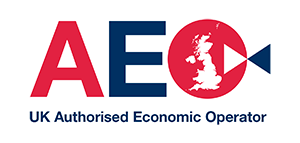
The end of April will bring multiple new customs regulations.
From the 30th of April 2024, your goods will need to arrive through the correct Border Control Post (BCP) or Control Point (CP) for your cargo's commodity type. You will also need to present your consignment for documentary, identification and physical inspections at either the BCP or the CP.
The following controls will also be implemented.
Goods from the EU or EFTA countries
For goods (which are subject to SPS at the border) from the EU or from EFTA countries, a new Inspection Messaging Service, provided by Defra and HMRC, will be implemented.
This service will alert hauliers, drivers and operators if an SPS inspection is required at a BCP or CP using existing government services, including IPAFFS, CDS and GVMS (Goods Vehicle Movement Service).
For EU and non-EU animal product imports
There will be a single Common Health Entry Document (CHED-P) import notification format for all animal product imports. Meanwhile, an IPAFFS will still be required for your import notification.
To organise your CHED-P import notification, get in touch with our experts today.
For ‘medium-risk’ EU imports
More identity, document and physical checks will be introduced at the border for medium-risk EU imports. However, this does not include medium-risk fruit and vegetable imports from the EU, Liechtenstein or Switzerland.
For fish and fishery product imports
From April 30th, additional compliance regulations will be implemented regarding the documentation of fishery products. Importers will be required to upload IUU (Illegal, Unreported, and Unregulated) documents to the CHED import format within IPAFFS before final submission.
This additional measure aims to prevent illegal fishing practices and promote regulation compliance.
For ‘high-risk’ plants and plant products
High-risk plants and plant product GB imports from the EU, Liechtenstein and Switzerland must pass through BCPs or CPs, instead of PoDs (Places of Destination). Consignments must be presented for inspection on request.
The Common User Charge
The April deadline will also introduce the new Common User Charge. According to the UK Gov, this charge pertains to UK businesses importing a consignment of goods that:
- enters or transits through Great Britain through the Port of Dover or Eurotunnel
- is eligible for sanitary and phytosanitary (SPS) checks at a government-run border control post (BCP) in England
The charge will apply even if the authorities do not select your consignment for SPS checks.
What is the Common User Charge?
The Common User Charge is a flat rate designed to recuperate the cost incurred by the government to run the planned Border Control Post facilities in the Port of Dover and Eurotunnel.
This charge will not be applicable to privately-run ports, who will be responsible for structuring their own cost-recovery initiatives.
The government will regularly review the impact of the Common User Charge on businesses of all sizes, with a focus on the effect it has on SMEs. Each year, rates will change and be updated accordingly.
Learn more about the upcoming common user charge here.
Advice for customers - how to stay compliant
As the April deadline (30th April 2024) draws closer, ensuring that you plan your journeys to CPs or BCPs ahead of transporting your goods is the best way to prevent potential delays for your GB imports.
In the face of increasing customs requirements, businesses who work smarter and not harder will continue to grow. With our easy & innovative customs platform and our excellent customer service team, we help businesses of all shapes and sizes to streamline their customs processes.
Recently, we received AEO status, an official recognition of our commitment to supporting UK trade and adhering to the correct procedures.
We’ve helped thousands of businesses remain customs compliant, and we can help yours too. Find out more about our industry-leading customs offering on our website, or get in touch with us for expert advice from real people.
Want to stay updated on customs news but don’t want to waste hours reading through legislation? We’ve got you covered. Subscribe to our mailing list and get relevant, straightforward customs news delivered straight to your inbox.








